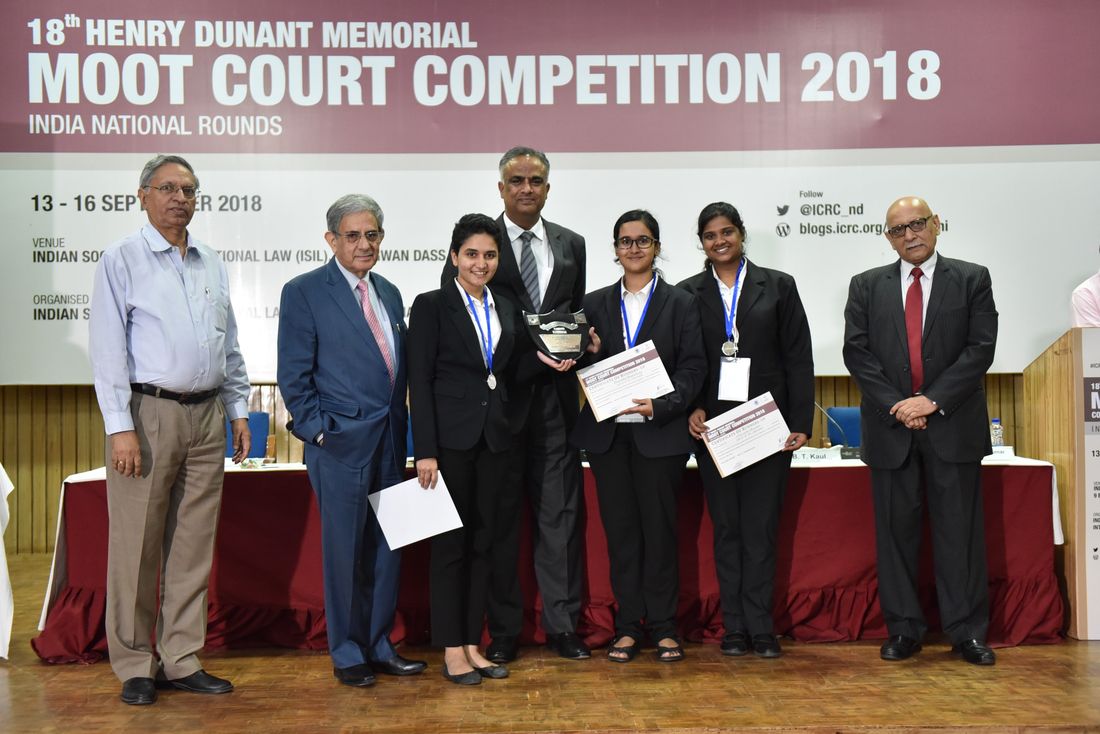The 18th edition of the Henry Dunant Memorial Moot Court Competition came to an exciting finish on 16 September 2018 with the Rajiv Gandhi National University of Law (RGNUL), Patiala emerging as winners while the Mumbai National Law University (MNLU), Mumbai came a close second. This year saw 47 teams from all over India competing for the prestigious title. The winners of the national round will compete in the regional round to be held in Tehran, Iran in November.
Speaking at the valedictory session, Maj Gen Nilendra Kumar said the Henry Dunant Memorial Moot Court Competition is one of the most sought after events in the circuit and congratulated the students for their hard work during the challenging rounds. Prof B T Koul, chairperson, Delhi Judicial Academy, spoke of the large scale participation. Emphasising the importance of the subject, he said, “IHL encompasses everything and also influences domestic law.” Talking about his experience as a first-time judge at the competition, Hon’ble Justice Kameswar Rao, Delhi High Court, said the students showcased excellent oratory and argumentation skills. He congratulated the teams and said that such a platform enables law students to become better lawyers.
Narinder Singh, Joint Secretary, Legal and Treaties Division, MEA, Government of India, said, “The judges had a difficult choice to make as the mooters in the final round were very strong. Thank you to the ICRC and ISIL for putting together such a good competition.”

The runners-up team from Mumbai National Law University consisted of Navneeta Shankar, Shraddha Chakraborty and Snehal Dhote. ©ICRC
Ushashi Dutta, Advitya Grover and Sugandha Sawhney from Rajiv Gandhi National University of Law, Patiala made up the winning team. They were visibly excited about the next hurdle, the regional round in Iran. The all-female team from Mumbai National Law University consisted of Navneeta Shankar, Shraddha Chakraborty and Snehal Dhote. They said being in the competition provided them with a platform to talk about international humanitarian law.
Arkaprava Dass, Rishika Jain and Ahmad Ammar from Jamia Milia Islamia won the best memorial award. Carol James of Dr Ambedkar University, Chennai and Purvi Nema of National University of Study and Research in Law, Ranchi jointly received the prize for best researcher while Navya Singh of Nirma University, Ahmedabad and Utsav Garg of National Law Institute University, Bhopal were both adjudged best advocates.
Highlights of the final round:


